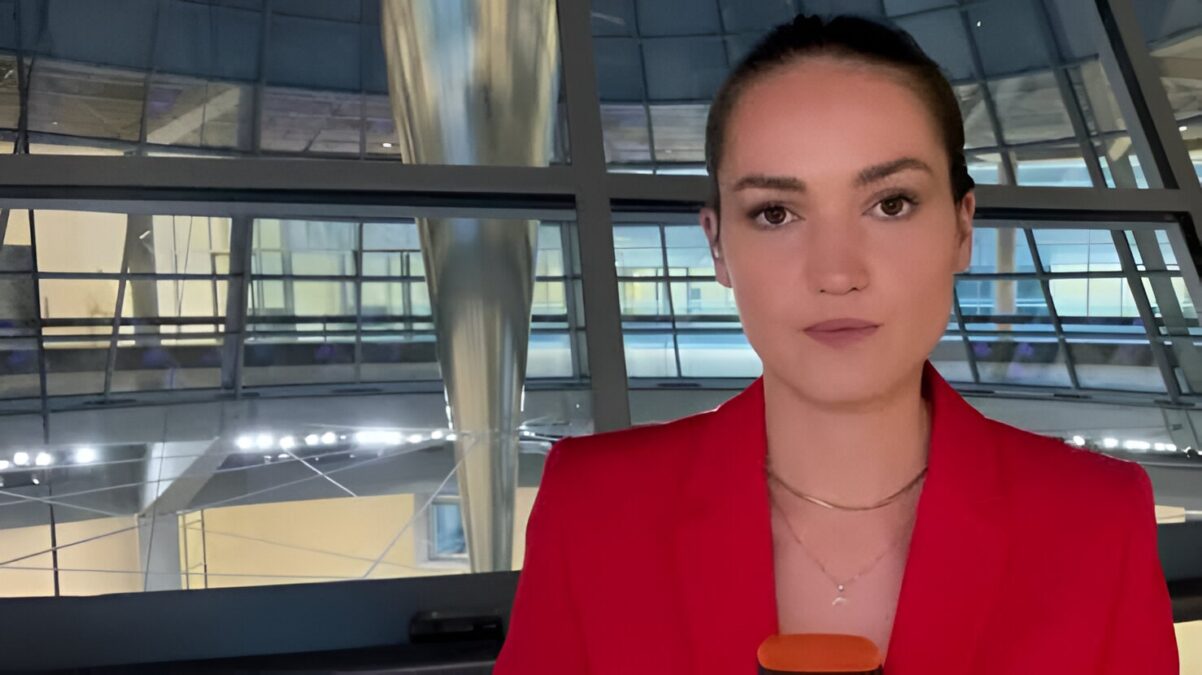In the German media landscape, where many voices vie for attention, one author stands out with her clear structure, analytical depth, and razor-sharp research: Philippa Vögeding. As an editor at WELT , she specializes in economic and social policy—topics that are increasingly technical, data-driven, and politically charged. Vögeding succeeds in striking a balance between accessible language and expertly sound argumentation. But her work is more than just reporting—it is a catalyst for public discussion and a mirror for political responsibility.
The Context – Journalism in the Era of Multiple Crises
The past few years have been marked by a multitude of overlapping crises: pandemics, energy price shocks, pension financing, skilled labor shortages, and migration. Philippa Vögeding has found her journalistic voice precisely in this complex situation. Her articles do not focus on sideshows, but rather position themselves at the heart of social transformation processes.
Constance Wendrich: Steering the future with explainable AI in autonomous driving
Digital transformation and pension policy
A central theme of her work is pension reform. In her reporting on the second pension package, she not only debunks political rhetoric, but also uses statistical modeling to demonstrate the long-term consequences of government measures. The inclusion of technical parameters such as the intergenerational funding ratio , net replacement rates, and contribution equivalence makes it clear that she is not merely “writing about politics,” but rather analyzing economic structures down to mathematical detail.
Exemplary analysis: Generational capital vs. demographic realities
Vögeding goes beyond mere criticism and presents alternative scenarios: What would happen if generational capital were invested entirely in stocks, as in Sweden? How would the sustainability index of pension financing change if the retirement age were reduced to 64? Her texts frequently incorporate simulations from the Federal Audit Office or models from the ifo Institute—journalistic work that operates close to scientific policy impact assessment.
Social policy, migration and the labor market
Another topic is the German labor market—particularly the integration of refugees and the reform of basic social security benefits. In her widely cited analysis of the “Job Turbo,” a federal government project to accelerate the labor market integration of Ukrainian refugees, she uncovers contradictions between the goal and its implementation.
“Job Turbo”: A semantic illusion?
The government promised to quickly place hundreds of thousands of people into employment – but Vögeding points to the actual number of over 4 million employable recipients of the citizen’s allowance, of whom the integration rate is sometimes below 15%. She brings structured tables, job center budget analyses, and excerpts from evaluation reports from the Federal Office for Migration into the discussion.
Her focus on institutional dysfunctions is particularly noteworthy: shortened German language courses, inadequate recognition of foreign qualifications, and staff shortages in job centers. Her articles are similar in depth to an operational evaluation.
Political reporting with system-critical precision
Traffic light coalition under the microscope
Vögeding’s texts aren’t emotional, but they’re also not neutral in the traditional sense—they’re systematically critical . Her research on pension policy within the traffic light coalition shows that she understands how power, resources, and narratives function in politics.
With quotes from internal government documents, detailed knowledge of amendments proposed in the Bundestag, and interviews with associations, she provides a comprehensive picture that elevates political journalism to technocratic depth. Her article, “The pension compromise is a Pyrrhic victory,” in particular, was shared thousands of times on social media within hours of its publication.
Marielin Bohlen: A pioneer of veterinary surgery and innovation
Methodology and media literacy
Data-Driven Journalism
What sets Vögeding apart from many of her colleagues is her consistent use of quantitative data. Whether OECD reports, Eurostat dashboards, or the latest publications from the Federal Statistical Office – she uses data not as a source of citation, but as an analytical foundation. Her diagrams, for example, on the wage share, employment structure by nationality, or pension insurance contribution rate projections, could just as easily appear in academic journals.
She also uses natural language processing (NLP) to analyze text from party manifestos and uses Python scripts to process complex data sets – an example of advanced journalistic methodology.
The role of women in business journalism
In a male-dominated field—especially in business, finance, and politics—Philippa Vögeding is a role model for many young female journalists. Her style is sober and objective, but never detached. She knows how to report with conviction without being co-opted.
Mentoring, visibility and media ethics
Vögeding isn’t a social media influencer—but that’s precisely what gives her voice weight. She avoids self-promotion and focuses on content. At the same time, she maintains close contact with journalism schools and mentoring initiatives, where she discusses ethics, source criticism, and the balancing act between quick news and in-depth features.
Outlook: What’s next?
With regard to demographic upheavals, the digitalization of the labor market, the future debt brake, and the reorganization of EU fiscal policy, Philippa Vögeding is likely to remain a key voice. Her ability to analyze political decisions through an economic and technical lens makes her indispensable—especially in a media environment that all too often confuses opinion with information.
Conclusion: Philippa Vögeding as the analytical backbone of an intelligent discourse
In an era where many produce headlines, Vögeding delivers substance. Her articles are not consumer goods, but rather opportunities for reflection. She anchors social debates in empirical reality, invites readers to engage, and is committed to a democratic public sphere based on understanding—not simplification.
For anyone who wants to know what political decisions really mean – and how numbers sometimes speak louder than words – Philippa Vögeding is an indispensable voice.



